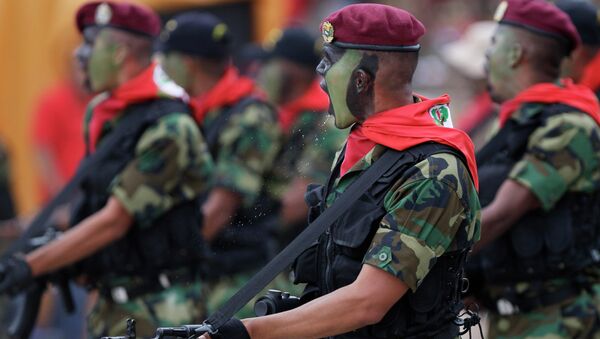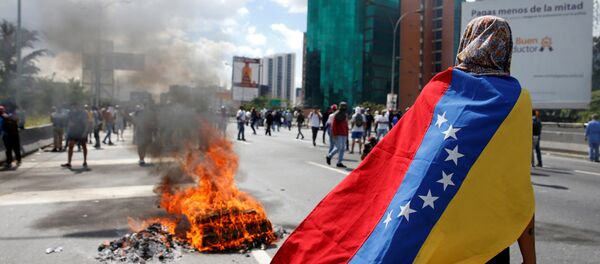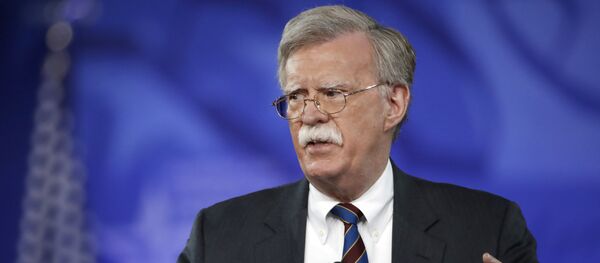Therefore, in the context of a military solution to the Venezuelan crisis, which Donald Trump has allegedly proposed, the question arises: is a state-sponsorship designation of Venezuela preparation for armed intervention in the country?
Lazar Kheyfets, professor from the Department of American Studies at Saint Petersburg State University and a leading researcher at the Institute of Latin American Studies of the Russian Academy of Sciences, told Sputnik that he does not believe this to be preparation for military action against Venezuela.
"After all, it's not the 80s now when it was possible [for US — Sputnik] to invade Grenada. Moreover, Venezuela is not Grenada, where apart from the Cuban airport builders there was no one to resist the US marines," the expert explained.
Venezuela: a Country Hard to Invade
Kheyfets also stressed that an invasion of Venezuela could have serious consequences for international relations and relations in South American organisations.
At the same time, Kheyfets noted that cooperation among Latin America nations would be necessary for a ground invasion. Even countries such as Colombia and Brazil wouldn't agree to participate in this.
"In addition, certain authorisation from international organisations would be required. I don’t think Americans would dare to do it unilaterally," Kheyfets said.
As for South American international organisations and the UN, it is unlikely that they would approve a military solution in the case of Venezuela. Consequently, the actions of the United States will be limited to declarations, the inclusion of the country in the list of state sponsors of terrorism and the reinforcement of already existing sanctions.
False Accusations
The expert also expressed surprise at Washington’s accusations about the alleged links of Caracas with the Hezbollah movement. If the accusations of ties with FARC have some logic, then the case of Hezbollah it is more serious. Therefore, solid evidence must be presented.
“I don’t really like the tendency to influence public opinion by making accusations that are not supported by any concrete evidence,” Kheyfets explained.
For example, the former vice-president of Venezuela, Tareck El Aissami, is of Arabic origin, but this does not automatically turn him into a foreign intelligence agent and does not mean that he cooperates with terrorists, Kheyfets said.
If Washington goes ahead and does label Venezuela a state sponsor of terrorism it would allow the US to place more sanctions on the Latin American nation, but it's unlikely that this move would have any effect on Venezuela's relations with other states. Sanctions would not have a great effect either.
“Countries that maintain close ties with Caracas may pay little attention to these sanctions, since some of them are also subject to sanctions. These sanctions do not in any way interfere with a full economic life of Russia, China or Cuba,” Kheyfets explained.
READ MORE: Trump Signs Executive Order Targeting Venezuela's Gold Exports — White House
The sanctions do not particularly affect Venezuela’s relations with its partners, because they tend to share the same ideology. Therefore, Kheyfets concludes there is no reason to be concerned about Washington’s latest moves.
Views and opinions expressed in this article are those of Lazar Kheyfets and do not necessarily reflect those of Sputnik.





